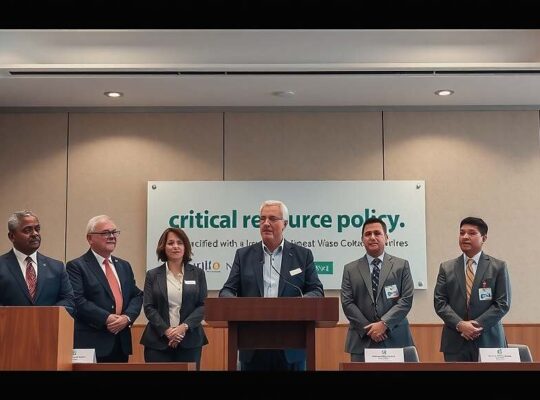The German Environment Minister, Carsten Schneider (SPD), is urging the governing coalition to swiftly clarify its climate policy plans. In an interview with the Frankfurter Allgemeine Sonntagszeitung (FAS), Schneider emphasized the need for resolution and decision-making within the government regarding areas ranging from climate protection programs to adaptation measures. He referenced the coalition agreement, which outlines specific climate objectives agreed upon under pressure from the SPD and CDU environmental advocates.
Recent statements from Chancellor Friedrich Merz and Economics Minister Katherine Reiche (both CDU) have raised questions about the coalition’s commitment to climate action, prompting Schneider to stress the importance of preventing “unmanaged conflicts” and proactively addressing differences to reach solutions. Concerns linger that unresolved policy divergences, a contributing factor to the previous governing coalition’s dissolution, could resurface. Recent disagreements regarding electricity tax and the election of constitutional judges have already evoked comparisons to the challenges faced by the prior alliance.
Schneider also distanced himself from the policies of former Climate Protection Minister Robert Habeck (Greens). As Regional Commissioner, Schneider stated he offered his support to the later-controversial State Secretary Patrick Graichen, highlighting the importance of the eastern regions for the energy transition, possessing both the largest areas and the most significant resistance. He criticized Graichen’s rejection of this collaboration, arguing it disregarded the importance of democratic processes. Schneider expressed a desire to move beyond polarization and return to a more reasoned approach towards climate issues.
Furthermore, the minister advised his own party to engage more openly on issues of equitable distribution. “We need more clarity in distribution questions” he stated, specifically referencing the limited public discussion surrounding individuals benefiting from inherited wealth and avoiding the workforce while drawing on social welfare. He expressed encountering numerous individuals fitting this description during his time in office.












